Market Segment
March 31, 2023
Cold-Rolled Imports Maintain Price Advantage Over Domestic Product
Written by David Schollaert
The wide spread between foreign and domestic cold-rolled coil (CRC) prices remains in place despite recent price increases in Europe, according to SMU’s latest check of the market.
Domestic CRC was, on average, $77 per ton more expensive than imported steel in the four regions we track as recently as early February. That premium has since ballooned to $386 per ton.
Extended lead times and a higher prices could push US buyers toward imports. Recall that US CRC lead times are averaging roughly eight weeks, nearly two weeks longer than in early February.
SMU uses the following calculation to identify the theoretical spread between foreign CRC prices (delivered to US ports) and domestic CRC prices (FOB domestic mills): Our analysis compares the SMU US CRC weekly index to the CRU CRC weekly indices for Germany, Italy, and East Asia (Japan and South Korea). This is only a theoretical calculation because costs to import can vary greatly.
In consideration of freight costs, handling, and trader margin, we add $90 per ton to all foreign prices to provide an approximate CIF US ports price. Buyers should use our $90-per-ton figure as a benchmark and adjust up or down based on their own shipping and handling costs. If you import steel and want to share your thoughts on these costs, I welcome your insight at david@steelmarketupdate.com.
East Asian Cold-Rolled Coil
As of Thursday, March 30, the CRU Asian CRC price decreased by $9 per ton to $762 per net ton, unchanged from levels one month prior. Adding a 71% anti-dumping duty (Japan theoretical), and $90 per ton in estimated import costs, the delivered price to the US is $1,393 per ton. The South Korean theoretical price is $852 per ton. The latest SMU cold-rolled average is $1,340 per ton, up $20 per ton week on week (WoW), and up $205 per ton compared to one month ago.
US-produced CRC is now theoretically just $53 per ton cheaper than steel imported from Japan but $488 per ton more costly than cold-rolled imported from South Korea.
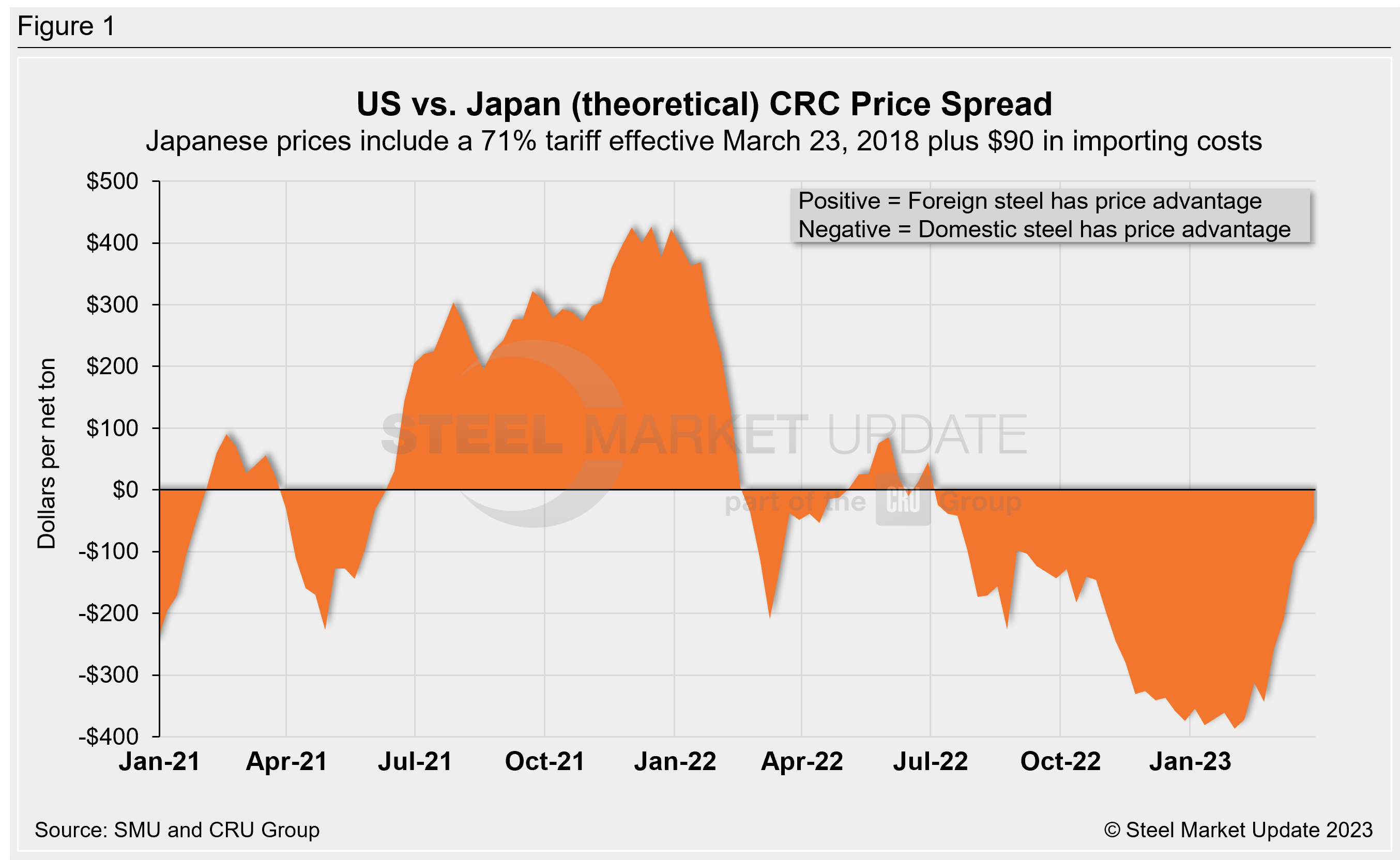
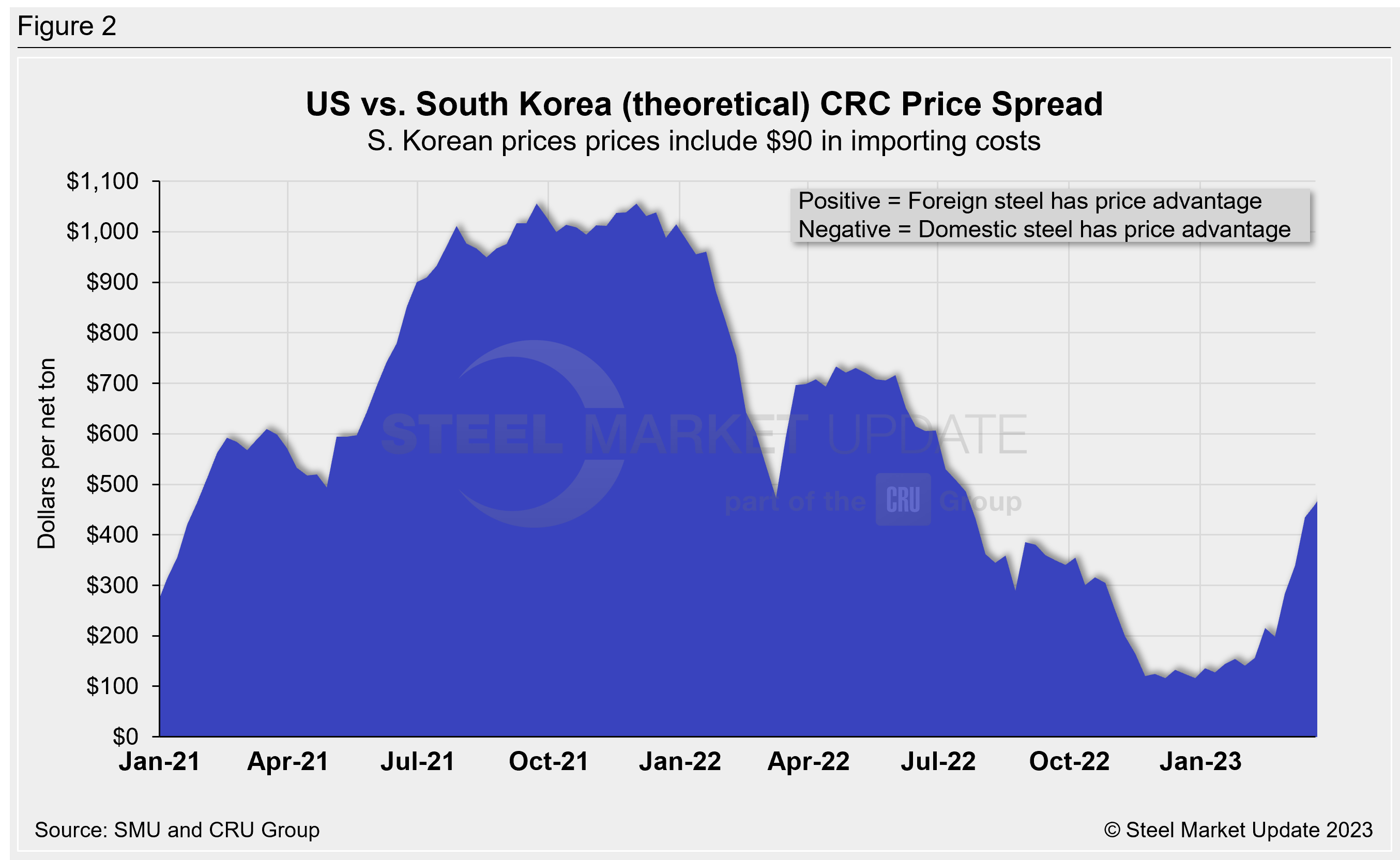
Italian Cold-Rolled Coil
Italian CRC prices increased by $38 per ton to $913 per net ton last week and are $73 per ton higher month on month (MoM). After adding import costs, the delivered price of Italian CRC is approximately $1,003 per ton.
Despite the prices gains in Italy, domestic CRC is still theoretically $337 per ton more expensive.
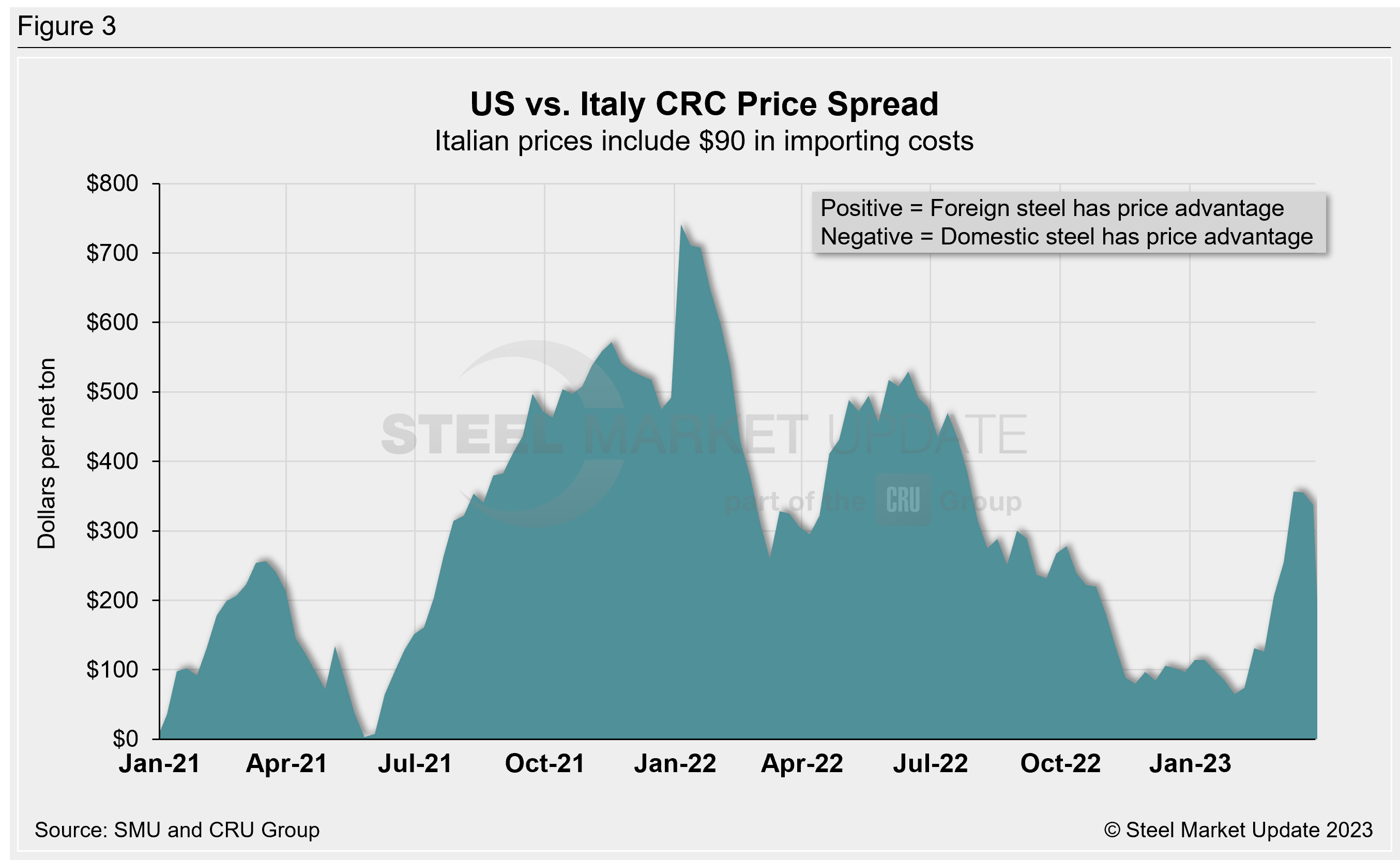
German Cold-Rolled Coil
CRU’s latest German CRC price rose $11 per ton WoW to $917 per ton and is up $44 per ton MoM. After adding import costs, the delivered price of German CRC is roughly $1,007 per ton.
Domestic CRC is now theoretically $333 per ton more expensive than CRC imported from Germany.
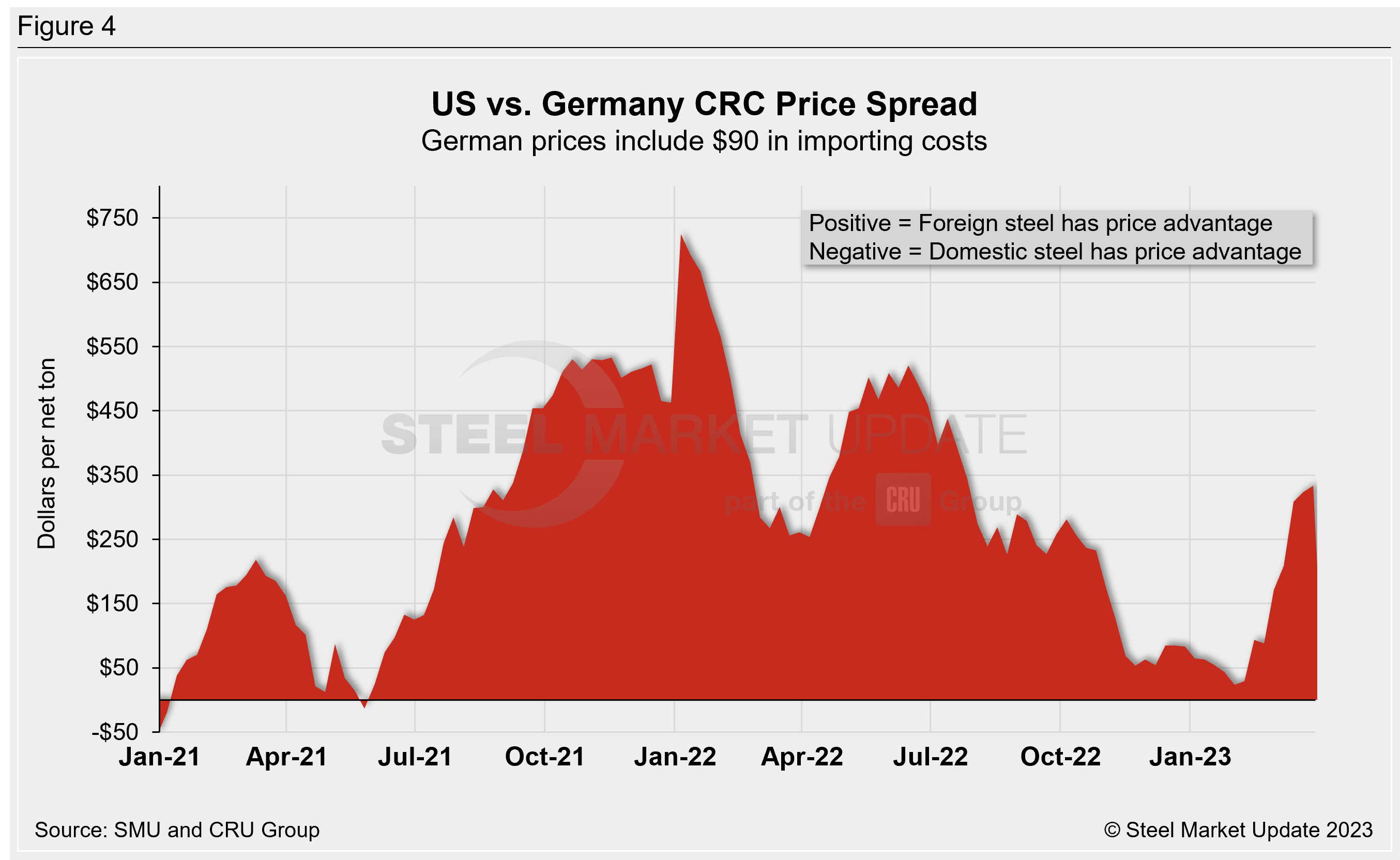
Figure 5 compares all five price indices and highlights the effective date of the tariffs. The chart on the left shows historical variation from Jan. 1, 2021, through present. The chart on the right zooms in to highlight the recent surge in US pricing.
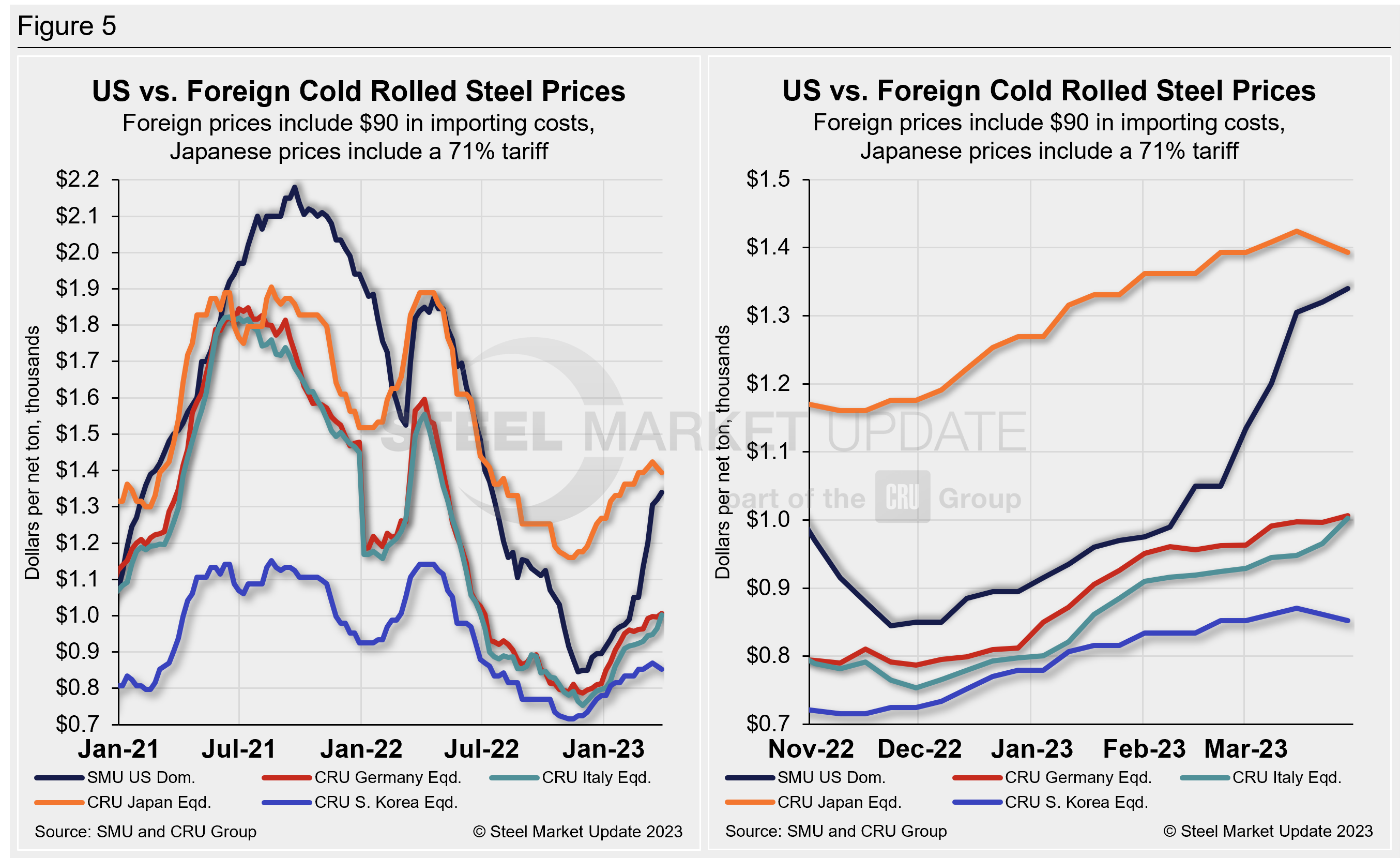
Notes: We reference domestic prices as FOB the producing mill, while foreign prices are CIF the port (Houston, NOLA, Savannah, Los Angeles, Camden, etc.). Inland freight from either a domestic mill or a port is important to keep in mind when deciding where to source from. It’s also important to factor in lead times too. In most markets, domestic steel will deliver more quickly than foreign steel.
Effective Jan. 1, 2022, the traditional Section 232 tariff of 25% no longer applies to most imports from the European Union. It has been replaced by a tariff rate quota (TRQ). Therefore, the German and Italian price comparisons in this analysis no longer include a 25% tariff. SMU still includes Section 232 tariff on prices from other countries where applicable.
By David Schollaert, david@steelmarketupdate.com







